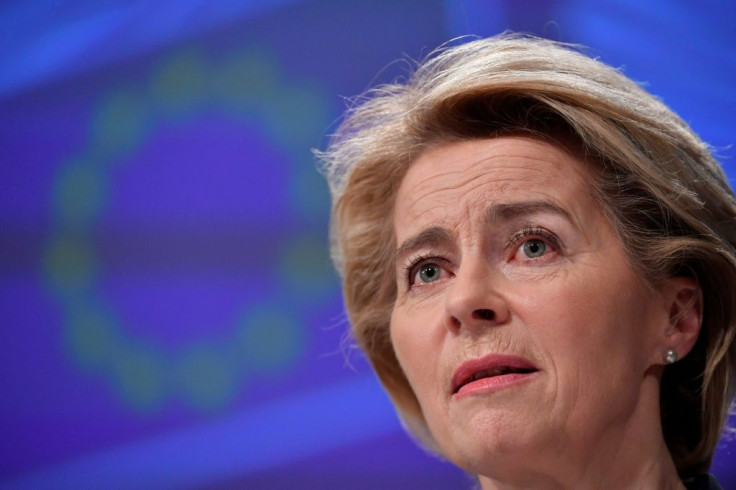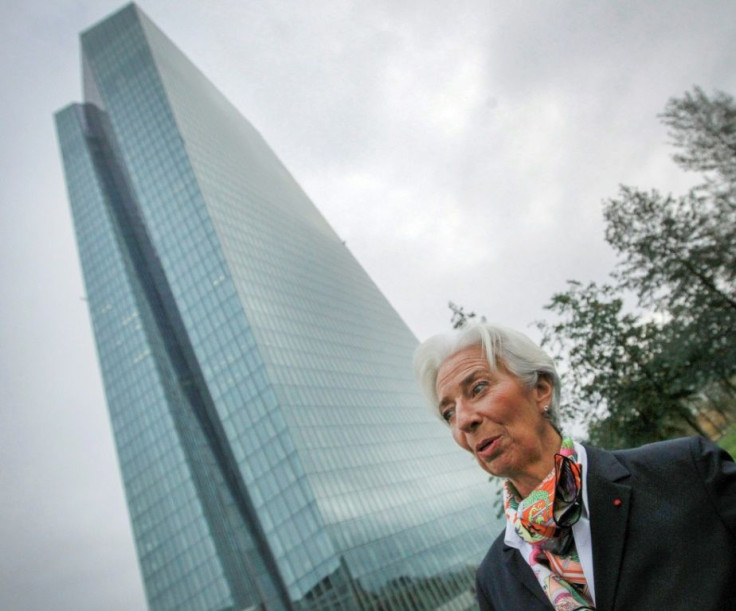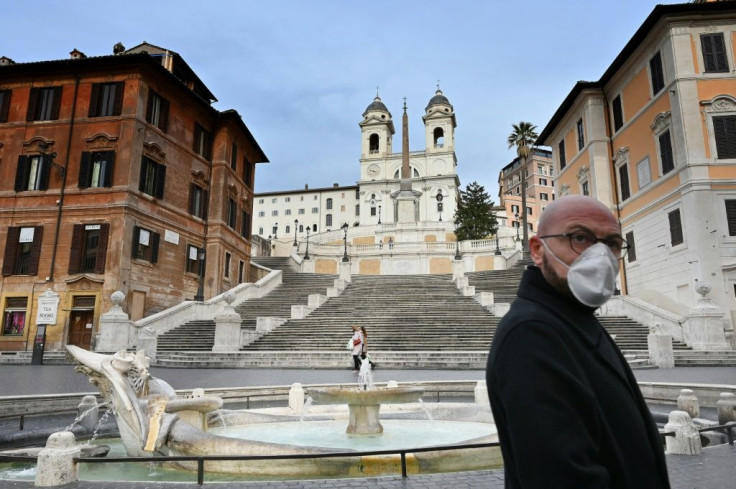EU Battles Virus And Promises Italy Whatever It Needs

The EU executive on Friday unveiled a raft of measures to protect the European economy from the coronavirus outbreak, and promised it would do whatever it takes for hardest-hit Italy.
The assurances by EU Commission chief Ursula von der Leyen came a day after ECB head Christine Lagarde stoked fury in Rome by implying that shoring up Italy's precarious financial situation was not her job.
The answer by Brussels was made ever more urgent as the EU predicted that a recession, maybe even a very deep one, was very likely for all of Europe this year.
Von der Leyen said the commission, the EU's powerful bureaucracy, would try to provide Italy with whatever it needs to overcome the challenge of the coronavirus.
"Whatever is necessary, we support. Whatever they will need, we will answer," von der Leyen, a close ally of German Chancellor Angela Merkel, told reporters.
The commission's firepower to save Rome and others is limited and would mainly involve reallocating unused EU spending, as well as giving governments a free pass to bail out businesses.
Brussels would also loosen rules on running high public debt and deficits, a sensitive topic for financially overstretched Italy.
Italian Economy Minister Roberto Gualtieri welcomed the commission's decision "with satisfaction".

Von der Leyen said member states would receive "maximum flexibility" to boost spending beyond the legal limits, a promise that will also help France and Belgium, both chronic overspenders.
Countries "should feel comfortable to take all the necessary measures", she said.
Known as the stability and growth pact, the rules theoretically limit a country's deficit to three percent of annual output and debt to 60 percent, a number that Italy has more than doubled in recent years.
Italy's debt pile will grow even more after it announced 25 billion euros in extra spending to pull itself out of its crisis.
All eyes now are on a meeting Monday of EU finance ministers who between them have the financial muscle to earn respect on markets that have been punished by the virus fallout.

This is especially pressing after the ECB's Lagarde was forced to row back her dismissal of Italy's debt problem in Frankfurt on Thursday.
An EU official meanwhile warned that growth in the eurozone and across the EU would fall below "and potentially considerably below" zero in 2020.
Von der Leyen's intervention followed several days of criticism for the EU's lack of collective response, which was most exposed by a series of border closures among partner member states.
In the latest example, the Czech Republic announced that as of Monday, it would ban all foreigners from entering the country and all Czechs from leaving.
Other member states including Austria, Slovenia and Hungary have suspended the rules of the passport-free Schengen travel zone and reimposed border checks, particularly with Italy.
"Certain controls may be justified, but general travel bans are not seen as being the most effective by the World Health Organization," von der Leyen said, calling instead for health screening at borders.
Such tests could be carried out either at borders or within member state territory.
"Any measure that is taken must be proportionate," she said.
Home affairs commissioner Ylva Johansson will present proposals on screening to a meeting of the 27 EU interior ministers later on Friday.
The European response to the virus has stepped up dramatically in the last 24 hours with several countries including France, Ireland and Belgium closing schools and universities.
Italy has imposed the continent's toughest response to a pandemic that has killed 1,016 people and infected more than 15,000 in the peninsula in less than three weeks.
The government has shut all shops apart from pharmacies and groceries in the hope of stemming contagion and easing the burden on Italy's overstretched hospitals.
Von der Leyen said the EU is also taking steps to deal with a shortage of protective equipment such as masks, after several countries including Germany and France abruptly banned exports to guard their own supplies.
She said that after talks, Paris and Berlin had relented and are now "willing to adapt their national measures, as we requested".
© Copyright AFP 2024. All rights reserved.





















